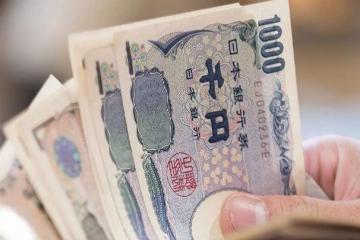Yen Plummets Sharply!
Advertisements
On the morning of Thursday, December 19, the Bank of Japan made a significant announcement that the benchmark interest rate would remain unchanged at 0.25%, aligning perfectly with market expectationsThe decision was reached with a decisive 8-1 vote, in which only one committee member, MrTamura, expressed dissent by advocating for an increase in interest ratesThis move reflects the central bank's cautious stance amidst a complex interplay of economic signals.
The Bank of Japan reaffirmed that the trend of inflation appears consistent with its outlook for the latter half of the year, implying that the economy is progressing in line with its forecasts—a vital prerequisite for considering a rate hikeThis cautious optimism comes alongside the central bank's release of a survey examining the strengths and weaknesses of the various unconventional monetary easing tools it has employed over the past 25 years in its battle against deflation
This report symbolizes yet another step toward transitioning away from its massive stimulus measures, which have characterized Japanese monetary policy for years.
Following the announcement, the value of the U.S. dollar saw a short-term spike against the Japanese yen, gaining nearly 60 points to reach a new trading level of 155.32. Analysts at JP Morgan raised a flag, warning that any unexpected rate hike by the Bank of Japan could trigger significant volatility in the yen's valueThey suggested that a move towards increasing rates in December could lead the USD/JPY pair to initially drop between 1% and 2%, potentially surpassing the declines observed during the rate hikes back in July.
The decision to maintain the current interest rate underscores the policymakers' inclination to take additional time to observe whether wage increases will be sustained and widespread, demonstrating their commitment to keeping inflation around the long-term target of 2%. Prior to this meeting, the market had almost fully priced in the expectation that there would be no change in rates, leading the focus toward forecasts of inflation and economic growth, as well as remarks on future rate hike possibilities.
The uncertainty surrounding the economic and price outlook in Japan remains exceptionally high
- Cambrian Soars Past Nvidia, Broadcom with 4x Surge
- The Fall of German Auto Giants
- Perspectives on Tech Stocks After Rate Cuts
- Yen Plunge Casts Doubt on Japan Rate Hike
- Treasury Yields Rise Amid Asset Scarcity
The Bank of Japan noted that inflation expectations are gradually on the rise, with the core Consumer Price Index (CPI) currently hovering between 2% and 2.5%. The report suggests that during the second half of the year, prices should align with the target level, although government actions and oil prices will undoubtedly influence this trajectory.
In terms of economic activity, private consumption is showing moderate growth, and while the Japanese economy is on a slow recovery path, it is not without its weaknessesEconomic growth is expected to remain above its potential level, yet the Bank of Japan acknowledges that recent depreciation of the yen could have a greater impact on inflation than in the past, due to changing corporate wage strategies and pricing behaviorsTherefore, careful scrutiny of foreign exchange movements, market trends, and their impacts on the Japanese economy and price levels is essential.
Furthermore, the Bank cautioned that there exists a "high level of uncertainty" regarding the interactions between its policies and the stock and currency markets
The central bank's recent report on its monetary easing policy outlines how, since 2016, long-term interest rates have declined by about one percentage pointIt estimates that the impact of its expansive monetary policy has contributed to GDP growth in the range of 1.3% to 1.8% and the CPI by between 0.5 and 0.7 percentage pointsNevertheless, the report indicates that the quantification of the effectiveness of these easing measures remains ambiguous; while they have influenced inflation expectations to a degree, they have not anchored inflation consistently at the desired 2% level.
Given this context, the Bank of Japan emphasized the necessity of continuing its monetary policy aimed at achieving sustained price stability around the 2% targetIn contemplating future actions, they should not rule out any specific measures that could be required to meet this goal.
Looking forward, as the prospect of a rate hike within the current year dwindles, market participants have shifted their expectations towards early next year
This transition places increased scrutiny on Governor Kazuo Ueda as he searches for the right timing for a potential third rate hikeRecent economic indicators are aligning with the Bank's inflation forecasts, and January 2024 is becoming a favored target among market players for the next rate adjustmentThe recent dissenting vote regarding the interest rate decision reinforces these high expectations for next month.
Citi analysts predict that the Bank of Japan may take action in January, potentially implementing a rate hike as the Japanese economy shows signs of revival and inflationary pressures emergeMeanwhile, Bank of America suggests that the probability of a rate hike in January is also increasingNotably, January is the month when the Bank releases its "Outlook Report," providing a more significant platform for conveying its policy intentionsIf there are significant shifts in U.S. economic policies, the Bank could delay any rate hike until March.
As Japan navigates an increasingly complex economic landscape, marked by global inflationary pressures and domestic recovery efforts, the approach of its central bank will be closely watched both locally and internationally
